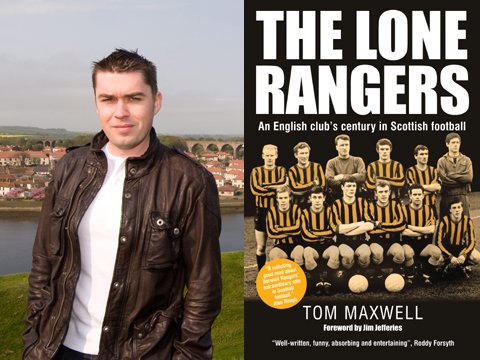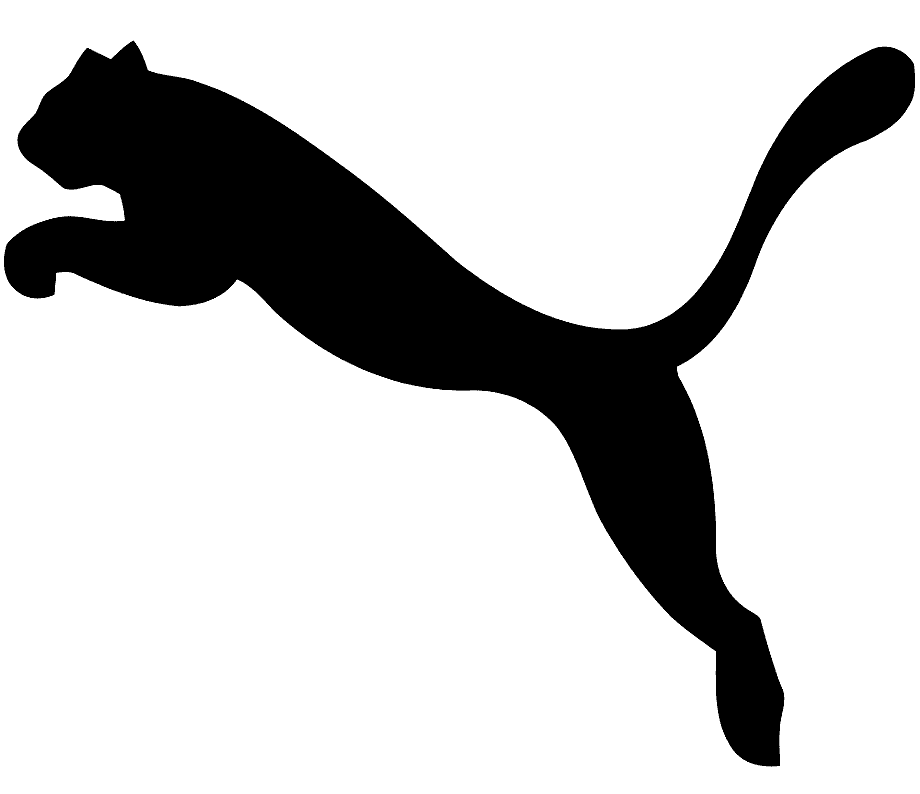If the measure of a good book on a football club is the number of nuggets of information you take away from it, then ‘The Lone Rangers – An English club’s century in Scottish football’ is the equivalent of a 3-2 win away from home at the League leaders after being two goals down.
 For author Tom Maxwell, charting the events of the Shielfield club was a labour of love with his curiosity about the only English team that plays senior football in Scotland starting as an 11-year-old.
For author Tom Maxwell, charting the events of the Shielfield club was a labour of love with his curiosity about the only English team that plays senior football in Scotland starting as an 11-year-old.
Maxwell said: “I have been watching Berwick since I was a child and I remember asking my dad where opponents Stenhousemuir came from. His answer led to other questions until I realised that Berwick was a unique club situated in one country but playing in another.
“The people of Berwick consider themselves a mix of Scottish and English and scarfs as well as badges supporting the club recognise this but we are an English club that has been integrated into the Scottish game and that has thrown up some interesting tales.”
The uniqueness of Berwick’s role in Scottish football itched away at Maxwell during his childhood, became a real irritant during Euro 96 along with Maxwell’s University days and eight years ago, he decided to do something about it.
“I always thought it was an interesting subject for a book and what happened during Euro 96 really brought it home to me about the uniqueness of the situation,” said Maxwell before adding, “Sky Sports' cameras turned up to film people in blue shirts and people in white shirts watching the England and Scotland game beside each other. At Euro 96, and the World Cup in 1998, England and Scotland flags were strung across the buildings of Berwick and I am sure that was not replicated just a few miles over the Border.”
Maxwell added: “I wanted to put my slant on the uniqueness of following Berwick Rangers. All in all, it turned into two years’ worth of work where I carried out a lot of interviews whilst also establishing my own separate career in PR. Alan Bell, the Berwick Rangers Club Historian, was incredibly helpful during this period.”
Bell, although helpful, exposed a major issue in the history of the club and without giving too much away, a number of clubs in Scotland that sent gifts to mark the club’s centenary in 1981 may be asking for them back as the lines of history have become blurred and the milestone was marked rather prematurely.
 Maxwell’s book is full of little stories like this that add up to a lot of history and a grand celebration of the distinctive situation Berwick Rangers and the town of Berwick find themselves in. Other great anecdotes of Black and Gold history laid bare are the fact that probably less than ten percent of the club’s players have been made from the country the club sits in and the fact that a Berwick boy played for Scotland without anyone checking his nationality as he was a regular at Hearts. If the SFA had checked, they would have found out this player had no reason to play in Dark Blue despite considering himself to come from Scottish leanings in the town and therefore considered himself to be Scottish.
Maxwell’s book is full of little stories like this that add up to a lot of history and a grand celebration of the distinctive situation Berwick Rangers and the town of Berwick find themselves in. Other great anecdotes of Black and Gold history laid bare are the fact that probably less than ten percent of the club’s players have been made from the country the club sits in and the fact that a Berwick boy played for Scotland without anyone checking his nationality as he was a regular at Hearts. If the SFA had checked, they would have found out this player had no reason to play in Dark Blue despite considering himself to come from Scottish leanings in the town and therefore considered himself to be Scottish.
Other stories that Maxwell tells of centre on the goalkeeping dad of a towering Scottish centre half that was to score at Wembley and how the player with the hardest shot at the club may have influenced Barnsley born author Barry Hines when he created the notorious PE teacher Mr Sugden in the 1968 novel 'A Kestrel for a Knave'.
Mr Sugden’s training regime is however, nothing compared to the tales of the demands put on players by Jock Wallace when he was the Player/Manager at the club with Wallace of course, in charge when Berwick secured their greatest ever win, a 1-0 success over the Rangers of Glasgow in the Scottish Cup in 1967.
That triumph brings a mixed reaction with goalscorer Sammy Reid telling of his pain that his goal cut short his Berwick career and also overshadowed his achievements in being part of a Motherwell team that defeated Rangers four times in the one season.
 On a more positive note, Maxwell talks of the delight in the players' minds as they recreate that game and the joy in 1994 when the only known footage of the game was unearthed with the author saying: “The brother of the Rangers goalkeeper Norrie Martin emigrated to Australia shortly after the game and the film went with him. To Berwick fans, the discovery is the equivalent of discovering the Zapruder film of the assassination of John F. Kennedy. The footage was taken from the perfect place and shows the winning goal in all its glory.”
On a more positive note, Maxwell talks of the delight in the players' minds as they recreate that game and the joy in 1994 when the only known footage of the game was unearthed with the author saying: “The brother of the Rangers goalkeeper Norrie Martin emigrated to Australia shortly after the game and the film went with him. To Berwick fans, the discovery is the equivalent of discovering the Zapruder film of the assassination of John F. Kennedy. The footage was taken from the perfect place and shows the winning goal in all its glory.”
Whilst the 1967 winners are quite rightly proud of their achievement, 2006/07 Third Division League Championship winner Gary Wood left Maxwell dumbstruck when he told him that he said he used to work at Tesco rather than tell people he played for the ‘Dream Team.’
The appearance of a barely fit George Best in a Scottish Cup tie gets a mention however, Best’s poor condition was matched if not passed by Paul Gascoigne who donned a Berwick jersey to play for them in a specially arranged match and England’s star of the World Cup in 1990 was found to have feet of clay.
Maxwell said: “The players that played that night were disappointed in Gascoigne’s performance and what was meant to be an exciting event for them was a damp squib.”
Berwick’s links to Italia 90 are not the sole ownership of the former Newcastle United, Tottenham Hotspur, Lazio and Rangers midfielder as Peter Beardsley played at Shielfield in 1993 and his national midfield colleague Trevor Steven used to have an off the field role at the club.
The player, who has won League Championship medals in England, Scotland and France, was next in line to take a penalty before Chris Waddell’s wild effort from 12 yards in the World Cup Semi-Final against Germany. His role in that shoot-out was never to be known however, his role as a programme seller for Berwick is discussed in detail by Maxwell when he was eventually able to track Steven down.
Another English internationalist who came close to donning Berwick colours was striker Michael Bridges however, the torturous process of gaining permission to play him proved troublesome with Maxwell saying: “As a youngster, Michael played his football close to Berwick but in footballing terms, it was a different country so the paperwork involved was taking so long that he went elsewhere.
 "It was just as bad for Martin Neil, who eventually became a Berwick player, after beginning his career playing on the park next to Shielfield.”
"It was just as bad for Martin Neil, who eventually became a Berwick player, after beginning his career playing on the park next to Shielfield.”
Managers that have come and gone in Berwick’s recent history get a fair degree of attention with Maxwell saying: “Dave Smith, who actually played for Glasgow Rangers back in 1967, remains a real favourite at Berwick. He led us to the Second Division title in season 1978/79 as Player/Manager and in reality, he should have been playing at a much higher level.”
Smith was a cool character with Maxwell saying: “He would nutmeg people for fun and anyone that can answer the question ‘Did you play with George Best at LA Aztecs?’ with the response, ‘No, he played with me’ must be a bit special.”
Jim Jefferies cut his vastly experienced managerial teeth at Berwick and Maxwell tells of how managing and controlling John Hughes was just a small part of his job!
Maxwell’s book highlighting that every Berwick game is the equivalent of an international was published a couple of months ago and the reaction has pleased him.
“It has all been incredibly positive and whilst I don’t like to talk about sales, I believe they have been good,” said Maxwell before adding, “What was more important to me was that the ordinary Berwick fans liked it. They seemed to enjoy it and it brought back good memories for them.
“The people at Northumbria Press have no real interest in football but they have enjoyed it and they delivered a fantastic looking hardback book. I did not see the finished article to just before the launch and to me, it is a thing of beauty. It has not been translated yet but I do chuckle when I see it available in Amazon US, Australia and Japan.”
 The recent launch could not be held at Shielfield due to the interest in the book so it was held at Berwick Town Hall with all but one of the surviving members of the 1967 team there with Jim Jefferies also in attendance despite losing his job at Hearts only days before.
The recent launch could not be held at Shielfield due to the interest in the book so it was held at Berwick Town Hall with all but one of the surviving members of the 1967 team there with Jim Jefferies also in attendance despite losing his job at Hearts only days before.
The power of the book was brought home to Maxwell that evening as he said: “There were over 80 copies sold that night and one of them was bought by a Hollywood star. Derek Riddell was there as his Dad, Ian, was part of the 1967 team and there was a great deal of excitement particularly from my fiancée, Jenny, as he appeared alongside Ashley Jenson in ‘Ugly Betty’.”
Just as Riddell, who was 17 days old when his dad played in one of the greatest ever cup shocks, is proud of his father, Maxwell is proud of his book saying: “I am proud of how it has turned out and the way it shows the uniqueness of my town, my team and their history as well as my own personal history.
“When Saturday Comes, The Scotsman and the Press and Journal all gave positive reviews as have other papers on both sides of the border and my next project will be to look at the Baker brothers, Gerry and Joe, from their very early days at Motherwell.”
One person who did not quite join in the celebration of the uniqueness of clubs like Berwick and their French equivalent of AS Monaco, was FIFA President Sepp Blatter, who issued a rather straight jacket response to Maxwell’s questions on issues such as how would any proposed 6 + 5 rule on national players impact on them.
Maxwell said: “At the moment, Berwick can represent Scotland in Europe with no restrictions, we just need to qualify for it now!”






.png)












